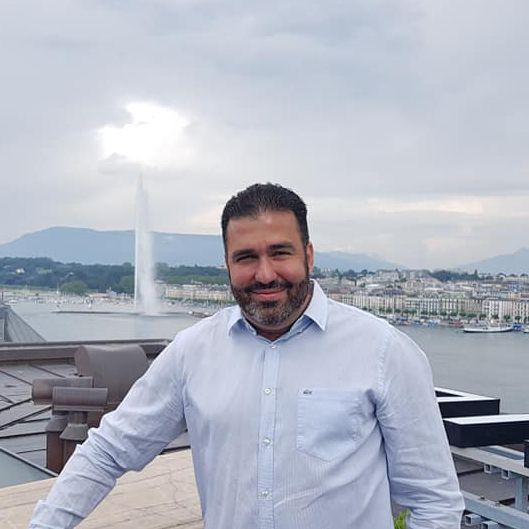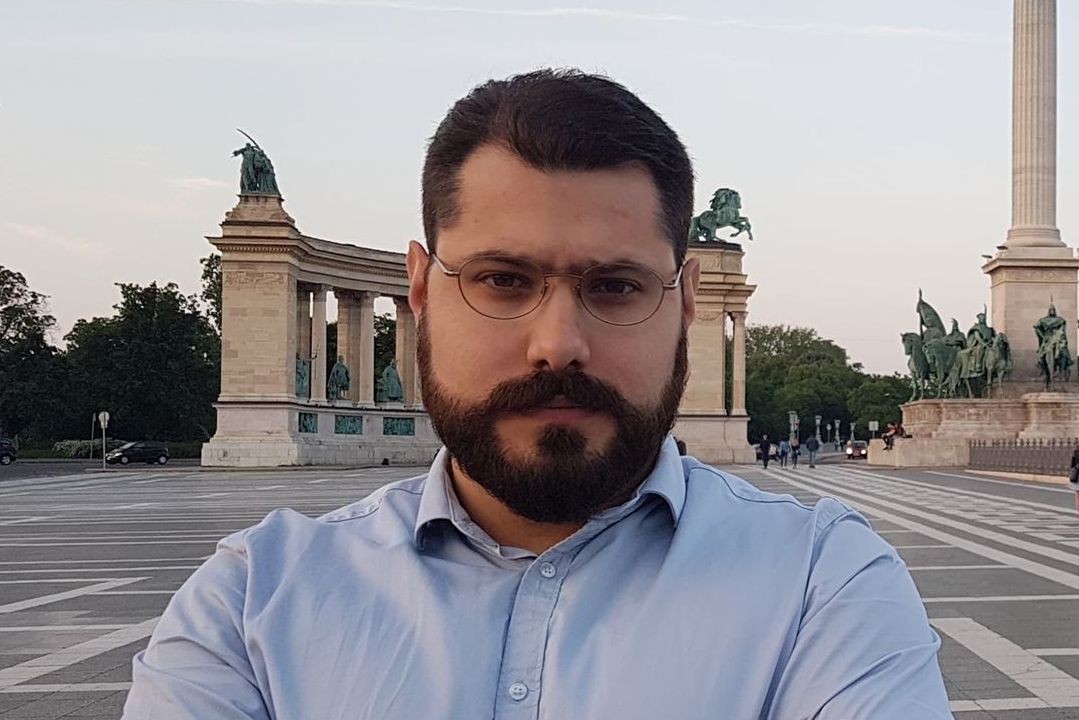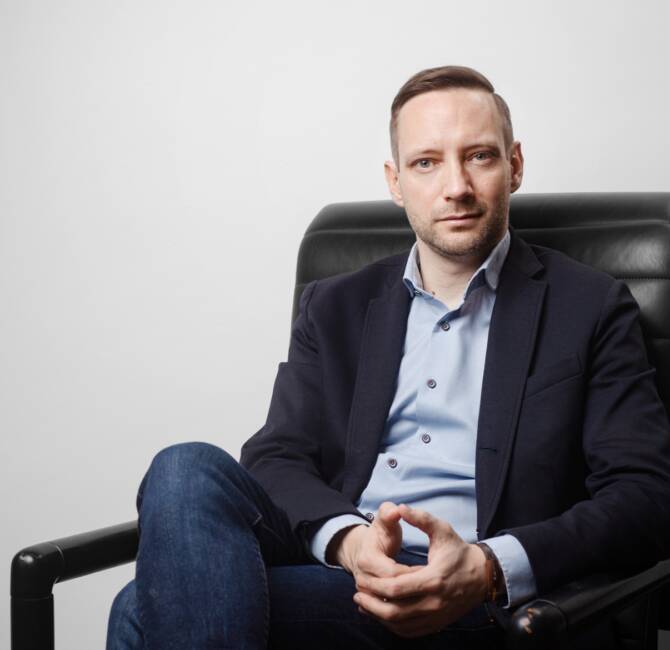Interview with Vojtěch Filip, the President of the Communist Party of Bohemia and Moravia: “Those who had an interest in looting the State’s remaining assets objected and are now helping the so-called citizens’ initiatives – which are effectively linked to George Soros’ activities – to organize protests against the government.”
Czechia – In late July 2019, Ferenc Almássy and Alimuddin Usmani met in Prague with Vojtěch Filip, the Deputy Speaker of the Chamber of Deputies and President of the Communist Party of Bohemia and Moravia, the KSČM, which, despite its recent decline, has still been a key player in Czech politics since the regime change. In the latest elections in 2017, the KSČM got 7.76% of the votes and 15 out of 200 seats in the Chamber of Deputies.
Contrary to western Communist parties, the Czech Communists did not evolve into liberal or ultra-Leftist stances – in the historical, Leninist understanding of the word. The KSČM is still focused on the workers’ conditions and is also known for its patriotism. Hence their opposition to mass immigration, which they see as a threat to the Czech workers.
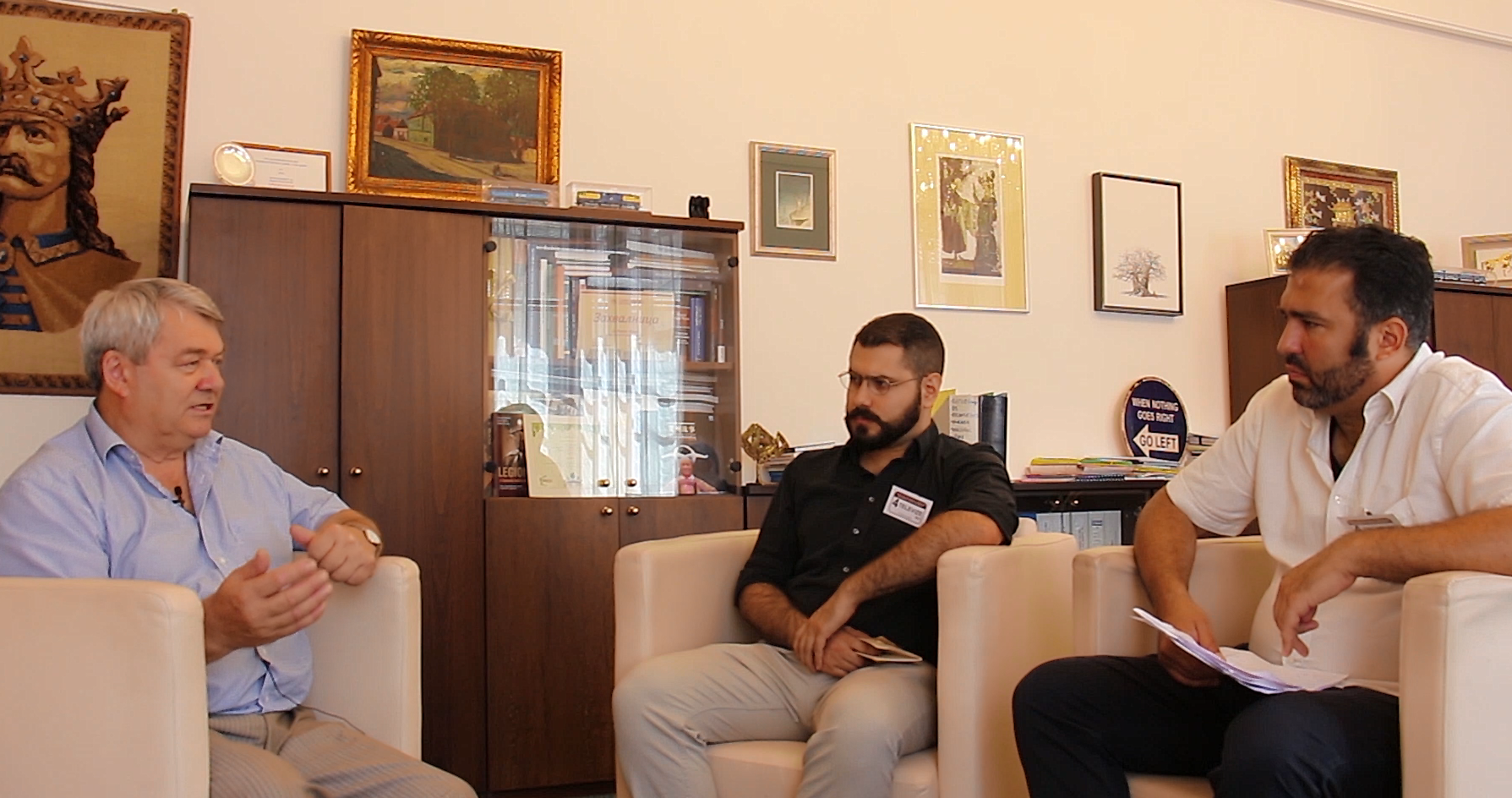
Ferenc Almássy: Hello, Mr. Filip. Thank you for welcoming us to the Czech Parliament in Prague, of which you are one of the Vice Presidents. You are also the chairman of the Communist Party of Bohemia and Moravia (Komunistická strana Čech a Moravy, KSČM), which is still quite significant compared to other Communist parties in the region. Incidentally, you played an important role in the elections and in the formation of Mr Babiš’ government, whom you supported in spite of initial ideological antagonism. In Hungary, one can also see that the Munkáspárt (Workers’Party), although it is much less significant on the Hungarian political stage than the KSČM in the Czech Republic, also supports – outside the government – the politics of Viktor Orbán’s populist coalition. How would you explain this mix of political ideologies to Western Europeans who are accustomed to the split between Left and Right?
Vojtěch Filip: Thanks for this question. I will speak more about the Czech elections than about Hungarian domestic policy. Following these elections [of 2017, ed.], the ANO party under Andrej Babiš had the option of either turning to the liberal Right or, if necessary, to the conservative Right, or else to opt for a program that was at least 50% copied from the Communist Party – i.e. intended for the workers and employees.
When the single government formed by Andrej Babiš and his ANO party failed to maintain parliamentary confidence, a constitutional crisis arose in Czechia. In fact, the second government formed by Prime Minister Babiš was not in a position to form an alliance with either the conservative Right, the liberals, or even with the Pirate party, which is rapidly growing in Czechia. The latter, however, is not a liberal party in the classical sense; it clearly tends towards anarcho-liberalism.
So Babiš turned to the Social Democrats and the Communists. The Communist Party of Bohemia and Moravia was unable to participate in the government because ANO’s security and foreign policy programs directly contradicts its own programs.
On the other hand, polls conducted six months after the elections showed that new elections had not solved the problem, as the different political camps would have received roughly the same number of votes. For this reason, the Communist Party of Bohemia and Moravia has decided, on a one-time exceptional basis, to support the formation of a government and to tolerate it – with seven very specific conditions. We were in an ideological conflict. However, it is not the goal of our party to harm the Czech people, but to help them. We also want the economy to develop positively, and that’s why we made this decision.
We are also well aware that some of the Communist Party’s voters, as well as those of other radical Left-wing and workers’ parties, have already turned away from their base as a result of such episodes. Still, I think it was a step in the right direction.
Alimuddin Usmani: The Czech government was recently confronted with major demonstrations calling for Andrei Babiš’ resignation. Some have argued that the Soros networks are involved in these events. As for President Zeman, he has been quoted as saying, “In November 1989, we demonstrated for free elections, and today we are demonstrating against the outcome of the free elections.” What would you say about these youths who took to the streets?
Vojtěch Filip: I will perhaps make the question a little more complicated by dividing it into two. First, the situation in Czechia looks like a dispute within the liberal cartel, in that several parties have nothing to offer but an outmoded neoliberalism. By that I mean the conservatives of TOP09, the liberals of the ODS, the Christian Socialists of the KDU-ČSL, and the Pirates, who also belong to this liberal cartel. In reality, all these parties and movements have the same political orientation. The Communist Party of Bohemia and Moravia, as a party of the radical Left within the Czech and European political system, is clearly in opposition to this neoliberal trend. Among the opponents of neoliberalism there are also system-critical parties and movements such as the populist Right-wing SPD of Tomio Okamura and, incidentally, other political actors who do not belong to the current political or parliamentary scene.
The ANO movement is not part of the system, either. Fundamentally, it has emerged to oppose the neoliberal model that has developed in Czechia since 1989 – or rather from 1993, when Czechia was created following the partition of Czechoslovakia. This is one of the reasons why the ANO movement, whose acronym stands for “Action of Dissatisfied Citizens,” was formed.
As part of our support for the formation of the government, we emphasized that we want things to change, that the crimes that were committed during the privatizations of the 1990s should be condemned, and that corruption must be reduced. On the basis of these points, we have formed a bloc with the ANO movement. We also asked that the greatest inequalities – at least at the fiscal level – should be addressed.
It is obviously necessary that those who took part in the theft of State property in the 1990s (I think of the ODS, KDU-ČSL, TOP09, or more precisely of throwaway parties such as the Union of Freedom, Public Affairs, or the ODA) cannot return to power and – forgive me – complete their theft of State property, such as the Czech forests, the Czech energy conglomerate (České energetické závody, ČEZ), or the Czech Railways (České dráhy, ČD) and other transport companies.
This was the goal we set ourselves, and that’s why we decided to support the government. Those who had an interest in looting the State’s remaining assets objected and are now helping the so-called citizens’ initiatives, which are effectively linked to George Soros’ activities, to organize protests against the government.
The reasons they put forward are misleading. For example, they began demonstrating against the new Minister of Justice who, at the time of the protests, had not taken any action other than to demand an investigation into the crimes committed during privatization. It is ridiculous that the protesters include former government leaders, such as Mirek Topolánek or Bohuslav Sobotka. All of this explains why our opposition to these protests is substantial.
Returning to the content of your question, it goes without saying that there are reasons for dissatisfaction. The society is split. Those who want to regain power rely on this split and make accusations against President Zeman. But it is not President Zeman who is dividing society. He was elected by the people and is in tune with Czech society, in contrast to those who hide their real intentions behind beautiful words. In fact, they seek to weaken Czechia by attacking its sovereignty as well as its good cooperation with Europe.
The answer to the protesters is simple: We want to ensure that there is no corruption, that the State’s assets are not looted, and that the citizens feel that they are receiving justice.
It seems obvious that for as long as the protesters do not express any particular political orientation – unlike the Yellow Vests in France, who have their manifesto – they are merely trying to foment destruction and are not interested in building a new society on a better basis.
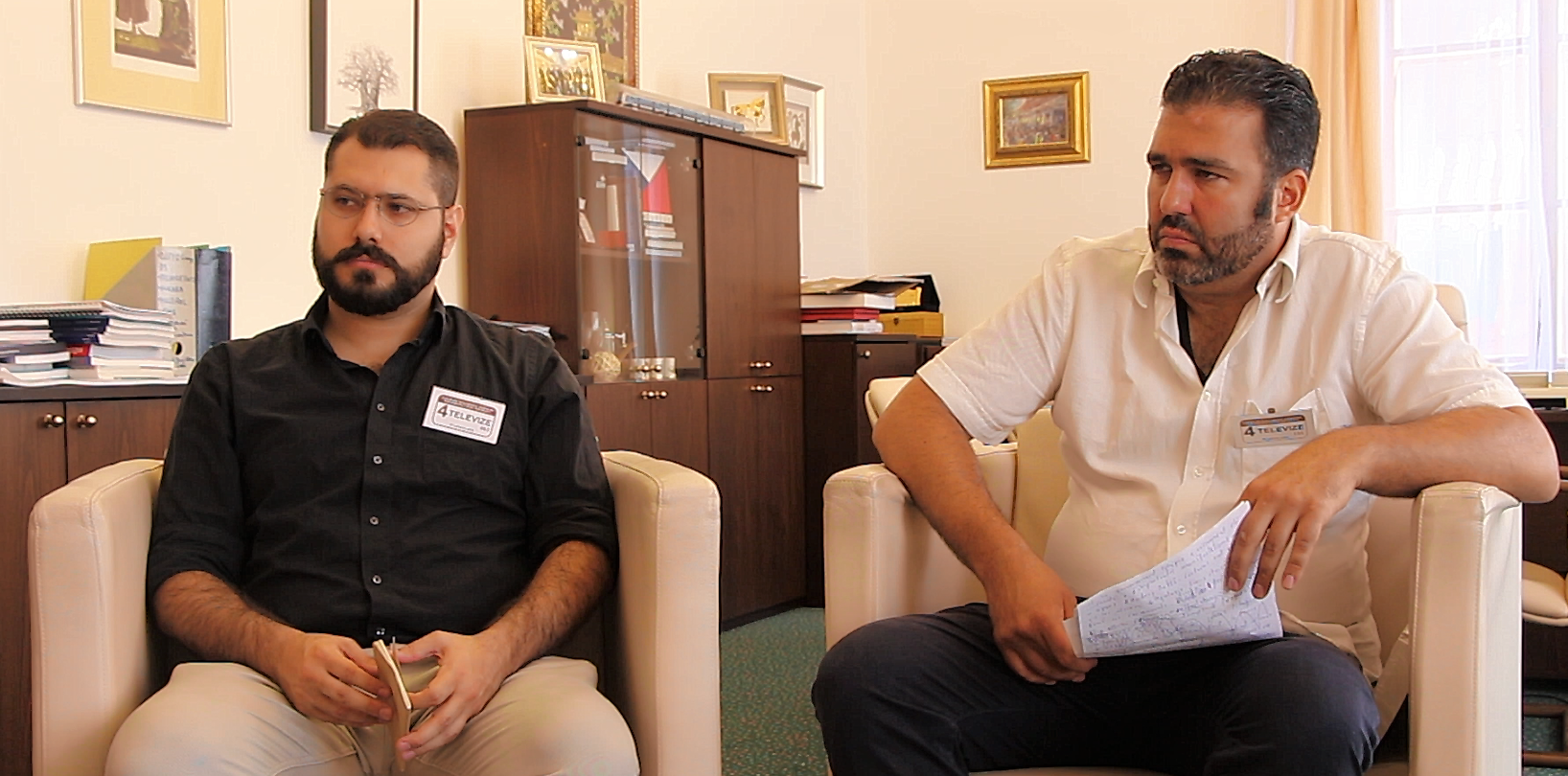
Ferenc Almássy: The European liberal consensus is very much in line with the notion of the rule of law – at least that’s what we hear all day long. This is certainly the case when it comes to Andrej Babiš, but is much less the case when it comes to this German captain, Carola Rackete, for example, who is violating Italy’s maritime borders by bringing in a Dutch-flagged ship filled with illegal immigrants. What do you think about these ostensible double standards, and more generally the immigrationist politics of the European elites?
Vojtěch Filip: I must repeat the fact that the current European Commission, headed by Jean-Claude Juncker, is incompetent and unable to solve European problems. The explanation for Brexit lies in the European Commission’s incompetence, which fails to find consensus among the European nations and to create unity among the Member States. Their attempt at federalization is failing because the citizens do not seethe European Commission’s approach asa positive one for the progress and development of the Member States. They rather think that it is an outdated bureaucratic model.
The main problem that is raised by your question is that of double standards. Some people want to apply rigorous measures to some, while everything appears to be allowed for others.
As for the wave of migration, the Italians already mentioned it in 2011 and saw it as a major European problem. Nobody paid attention to it, and the new Commission forgot that the aggression against Libya resulted in an even greater migration wave from North Africa. Indeed, there was no state that was able to communicate with those who flocked from Central Africa to North Africa. If the Libyan state had been functional, it could have stopped them. Currently, this state is in disarray, and we do not know who will be in power there in the near future.
We cannot solve the migratory problem, which originates from those countries we used to call the Third World, only by dealing with its consequences. We must solve migration’s causes– namely, poverty in Africa and Central Asia, and incidentally in the cities of Syria, Palestine, Iran, and Iraq as well. It is pointless to only deal with the consequences, because they arise from migration’s causes, and these have their sources in the countries of the Arab world and in Africa. This means that if Europe really wanted to solve this crisis, it would have to invest in these states and in the education of their peoples so that they could stay at home and maintain their economy. This neoliberal model, which basically plundered these states, simply resulted in bankruptcy – and the European Commission has done nothing about it.
As for the attacks against Central European countries such as Hungary, Poland, and Czechia, which claim that we are not fulfilling our obligations, we must emphasize that none of these countries ever had colonies. We have no responsibility for having lived on the backs of these former colonies. We never benefited from this, and we do not see why we should pay for the consequences of colonialism. This is the point of view we have countered to the European Commission’s accusations.
This double standard is the result of the European Commission’s inability to solve the causes of migration. Moreover, it was not even willing to deal – especially in cooperation with NATO – with the need to protect the Schengen area’s external borders.
We do not want a return to national borders. We appreciate the free movement of people, but for this, Schengen’s external borders should be protected so that we are not forced to restore controls at the national borders. Cooperation regarding the free movement of persons is a positive thing in Europe, but it must not be achieved to the detriment of the Member States.
Alimuddin Usmani: Among the Central European countries, Czechia is the one that, according to the studies, is the least Europe-friendly. In the negotiations following the recent European elections, the Visegrád Group (V4) has obviously been able to exercise a kind of veto right, and it is gaining popularity. In the upshot, however, the countries of the Visegrád Group did not have access to the prestigious positions during these appointments. How do you see the future of relations between the EU, the V4, and Czechia?
Vojtěch Filip: The fact that we are skeptical about the European Union does not mean that we are opposed to an objective process of European integration. This is an objective process, and it does not make sense to oppose it. It is simply necessary to understand that even within an objective process, Member States must be able to find their place.
We are not a small country in Europe;we are a country of medium importance, as is Hungary. Poland is a country of great importance. As long as Brussels does not understand our demands, it will continue to cause more disintegration.
In Czechia, we believe that the two areas that have been poorly negotiated are those of agricultural and transport policy. We were prosperous in agriculture, and now we are a transit country. This is therefore harmful to us. Obviously, we cannot accept some of the things that the European Commission is trying to impose on us. When we resisted certain decisions, we, the V4, naturally found allies, particularly in Bulgaria and Portugal, who also oppose certain of the European Commission’s approaches.
How do I see the future? I do not think that the European Commission is going to make the effort to give birth to a European federation. Instead, it will deepen cooperation with the Member States so that they will express a desire for concrete cooperation. For us, this is important. We are at the beginning of a multipolar world, and it currently has only three solid pillars: the United States of America, the Russian Federation, and China.
We Europeans have two permanent members on the United Nations Security Council: France and Great Britain, but neither of these two countries is able to support the interests of the other European countries in the Security Council. This is especially because Great Britain usually stands alongside the United States of America, and France sometimes does not care about Europe’s interests. We often hear about a so-called Euro-Atlantic civilization, but this is not the actual model. The interests of the United States are perhaps even more visible than before Donald Trump proclaimed “America First.”
But the unipolar world has existed for a much shorter time than the bipolar world, and it is not possible to go back. States like India, Brazil, and South Africa are seeking to increase their influence in the world market and will obviously negotiate with these three basic pillars of the multipolar world. But we want Europe to be one of the pillars of this multipolar world. If it could be the fourth pillar, it would be very beneficial. For the moment this is not the case, because Europe has not able to develop a common interest among its states, and is instead leaning more and more toward the interests of the United States – to the detriment of its own.


